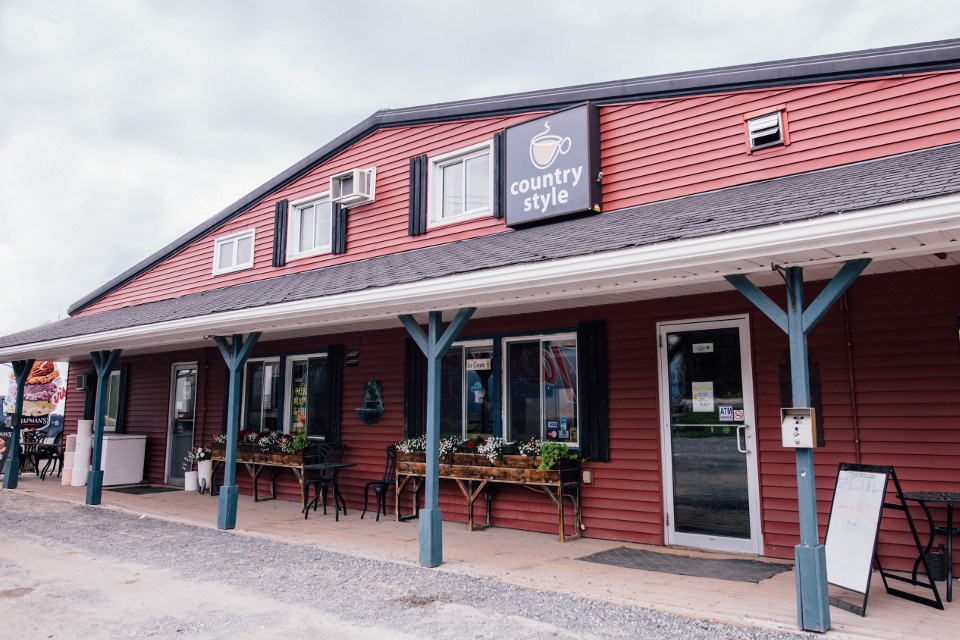Thornloe Cheese, a popular Highway 11 attraction, is under new farmer-directed ownership with a fresher direction.
Gencor, a Guelph-based livestock genetics company, acquired the award-winning commercial cheese producer from dairy giant Parmalat Canada.
The long-awaited deal was finalized in late January. No financial details of the transaction were disclosed.
The popular New Liskeard roadside stop was threatened with closure last summer and the loss of 19 jobs after Parmalat announced the 60-year-old facility no longer fit into their long-range plans.
The shop will now be run by Gencor Foods Inc., a subsidiary of the farmer-owned company, and will operate under the banner of Gencor Foods Thornloe Inc.
Gencor Foods president Yves Gauthier says customers, suppliers and distributors can expect to see a re-introduction of more cheese categories that were discontinued years ago with bigger plans in the works to expand their distribution into more national ethnically-oriented markets.
“The most important thing is that our distributors see no change in the quality of the product,” says Gauthier. “Once we get that well established we’re going to move into our marketing plan.”
There are also tentative plans to enhance the retail storefront by introducing a coffee brand for a café setting.
“We had to do so many things so quick to get this plant going,” says Gauthier, who’s also an Earlton dairy farmer and serves as the parent company’s Northern Ontario director.
Gauthier became involved in the struggle to keep the shop open last summer soon after Parmalat’s July 5 announcement.
The dairy mega-giant said the area’s milk quota was being “consolidated” into other Parmalat facilities.
But Parmalat was receptive to selling the property, the building and to help “ease the transition” with employees.
Gencor became formally involved in the acquisition process in mid-December.
The company, with offices in Guelph and Woodstock, is a leader in bovine genetics with 6,000 members on farms across Ontario.
Gauthier says Gencor is always interested in expanding assets that places more control of food production into the hands of farmers.
During the mad cow crisis in 2003, Gencor Foods purchased the closed MGI meat packers plant in Kitchener to handle the backlog of beef and dairy cull cattle in Ontario that needed to be slaughtered when the U.S. border was closed to Canadian exports.
Gauthier says Gencor members wanted their board to expand on the dairy side as well.
“The board of directors of Gencor are always looking at positioning farmers higher up in the chain and we’re always looking for something that will benefit our members and give us more power to get more control over what happens to our product from gate to plate.”
Gauthier says Thornloe will be run as a stand-alone business unit, “running under its own merit.”
Negotiating the milk quota with Parmalat was a major challenge with Thornloe securing about 3 million litres of the 18 million litres annually produced in the Temiskaming area.
As a member of the Temiskaming Milk Committee, Gauthier says, “we offered them a win-win situation where they could walk away with a great deal of the quota but leave enough for the sustainability of the plant.
“It’s no different then what dairy farmers do.
When you want to expand you have to buy someone else’s quota. (Parmalat) bought this plant and they needed to fill more quota into plants that weren’t running at full capacity.
That’s why we had to come in with a win-win situation.”
Thornloe Cheese began as family-owned operation in the village of Thornloe before the factory moved to its present Highway 11 location in the late 1960s. The plant has changed hands from local ownership to Ault Dairies and then to Parmalat.
The shop has produced award-winning product as a finalist in the feta category in the 2006 Canadian Cheese Grand Prix.
John Gauvreau, economic development director with the City of Temiskaming Shores, praised the local milk committee and dairy farmers for rallying to save the company and helping to orchestrate the new ownership group.
He says it helps keep northeastern Ontario’s rich agricultural legacy alive.
“This was more than another multinational company announcing the elimination of a small link in the big chain,” says Gauvreau. “For us, it was part of our heritage. Many of our forefathers have agriculture sector roots and for the many currently working in agriculture, this would have been the last local agricultural processing facility.”
Gauvreau says the city continues working on projects with the agricultural community on a number of fronts that involve “high-tech, value-added and untraditional” technologies and markets.




